Opinion
Was Lawan a stranger to Nigerians before his emergence as Senate President?
Published
3 years agoon
By
News Editor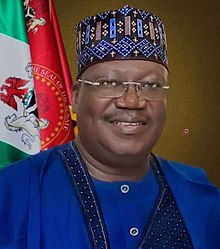
By Ola Awoniyi
I might have titled this piece: “Re: Once again, most legislators will not return to National Assembly,” because it was prompted by an article under that title written by the highly respected academic, rights activist and columnist, Prof. Jibrin Ibrahim, and published by some media outfits on Friday, 17th June, 2022. However, I decided otherwise because Prof. Ibrahim’s commentary, as usual, made many points that I consider valid and thus have no issue with.
But an aspect of the article is capable of leaving the reader with a wrong impression, and that is what I have set out here to correct.
Which means this piece is actually not a rejoinder, in the full sense of that word, to the article by the good Professor.
Just an amendment to it, as they would have described this effort of mine in Parliament.
The focus of Prof. Ibrahim’s article was the stranglehold of state governors on their political parties in their states and how this continues to reflect in the high turnover of lawmakers, especially in the National Assembly.
The writer mentioned the Senate President, Ahmad Lawan, as one of a few lawmakers who have had long tenures in the National Assembly, despite the harsh political atmosphere he observed.
His misstep was in how he explained Lawan’s survival.
Prof. Ibrahim wrote: “The Senate President, Ahmad Lawan, is the most spectacular exception that breaks the rule.
He has been in the National Assembly since 1999, first in the House of Representatives and subsequently in the Senate.
For some reason, successive governors of Yobe State have always given him the green light to stay on.
I wonder why? Could it be linked to his style and record of being unobtrusive and inconspicuous as a legislator who did nothing and was therefore perceived as non-threatening?
What is clear is that until he became the Senate president, hardly anyone noticed him.
He was discovered when he became Senate president three years ago and then broke the Richter scale of political ‘arrivism’ when the APC chairman announced him to be the ‘presidential’ choice of President Buhari.”
I would have ignored it if those assertions were made by an undistinguished writer.
But they are hard to overlook in the well-read column of a Professor of Political Science who is universally respected for the fairness and profundity of his opinions.
It is a typical of the columnist to claim that Lawan was unknown prior to his emergence as the 14th President of the Senate in 2019, because that claim is not true.
And it is not fair to say Lawan was “an unobtrusive and inconspicuous legislator” as of 2019.
Those claims left me curious because, more than most people, Prof. Ibrahim is in a position to know better.
He knew Lawan was the choice of his party,
the APC, for election as Senate President in 2015, based on his reputation as one of the most effective and better known opposition lawmakers in the Fourth Republic by then.
Of course, Prof. Ibrahim would remember that Lawan was the Senate Leader before his emergence as Senate President.
So, how can the Senate Leader be “unobtrusive and inconspicuous”? Even if a person was randomly appointed to the position, the role would haul him out of obscurity.
Aside from the presiding officer, the next most visible in parliament is the Majority Leader, who leads in championing the cause of their party’s government.
The Majority Leader harnesses support for executive bills and government policies in parliament.
Parties hardly assign such a critical role to a greenhorn, talkless of an “unobtrusive and inconspicuous” member of parliament.
And Lawan did not step into that position from darkness. Before his election to the Senate, he had spent two terms of eight years in the House of Representatives, where at different times he was privileged to chair critical committees like Agriculture (2003-2005) and Education (2005-2007), despite the fact that he was in the opposition at those times.
Such committees are usually chaired by members of the majority party in Parliament, so it is a reflection of what his colleagues thought of him to have accorded him those privileges.
At the Senate, to which he was first elected in 2007, Lawan held the very important chair of the Public Accounts Committee for eight years(2007-2015) and the Defence Committee for two years (2015-2017).
All those were before he became the Senate Leader. Does that profile fit the description of the “unorbtrusive and inconspicuous”?
I cannot understand why Prof. Ibrahim tried to serve his readers the impression that a man with such resume and history in Parliament was unknown before his emergence as the President of the Senate and Chairman of the National Assembly. Did he forget Lawan’s political journey out of
familiarity?
Lawan spent 10 years in the academic and acquired a doctorate in Remote Sensing and Geographic Information System before he ventured into politics in 1998.
That year, he was elected the pioneer vice chairman of the defunct All People’s Party (APP) in Yobe State and in 1999, was the Secretary of the Electoral Committee of the APP National Convention which held in Abuja.
As I was quick to say at the start, I have no quarrel whatsoever with the focus of Prof. Ibrahim’s said article of June 17, which addressed two phenomena that have become a malaise that needs to be checked for the growth of democracy in Nigeria.
One is the system that allows state governors to unilaterally determine who become party officials and candidates for elections. The other is the high
turnover of lawmakers in our legislative assemblies, especially in the National Assembly, as captured by the current situation whereby about half of senators did not get their parties’ tickets for the elections.
On those points and for his usual well-grounded interventions, I salute the good Professor.
Awoniyi is Special Adviser on Media to Senate President
You may like
-
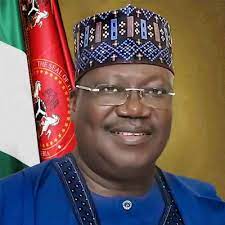

10th Senate: Count Me Out Of Senate Presidency Race – Lawan
-


PDP Govt abandoned Northeast to Boko Haram insurgency – Lawan
-


Ahmad Lawan: The Doyen of Nigerian Parliament @64
-
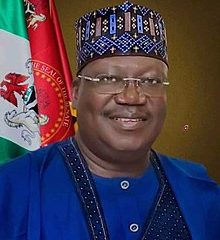

Buhari salutes Senate President Lawan at 64
-


Senate President blasts PDP, to have allowed BoKo Haram to fester
-
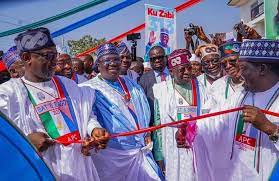

Lawan vows 98 percent Yobe votes will be delivered to Tinubu/Shettima
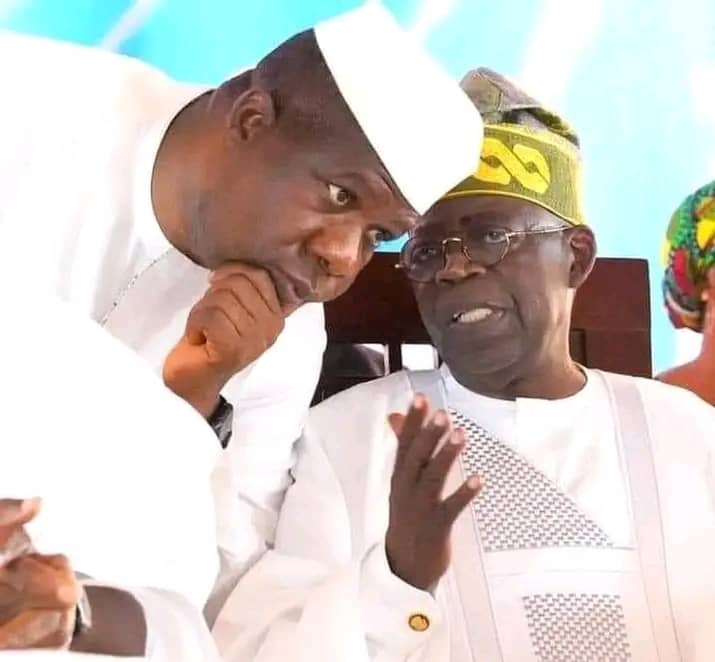
By Senator Opeyemi Bamidele, CON
Today, I celebrate a timeless doyen of democracy and an astute mentor of many leaders, President Bola Ahmed Tinubu, GCFR. By global standards, Asiwaju is truly a man of the people and the visionary of our times, who devoted his life to pursuing the greatest goods to the greatest number of people. This has been the core of his heart and life from when he was a boardroom guru in the 1980s to when he joined partisan politics in the 1990s.
Born on March 29, 1952, Asiwaju’s foray into politics in 1991 was never a mistake, though it came with a huge sacrifice that cost dearly. As a Senator of the Federal Republic of Nigeria, I celebrate how Asiwaju firmly stood with the people rather than dining with the military oligarchy that annulled the outcome of the June 12, 1993 presidential election ostensibly won by Chief M.K.O Abiola (now of blessed memory), an annulment that set our fatherland back to the pre-colonial era.
I also celebrate how Asiwaju teamed up with the progressives to establish the National Democratic Coalition, a movement of likeminds and progressives that fiercely challenged the regime of the late tyrant, General Sani Abacha; mobilised support for the restoration of democracy to our fatherland and campaigned for the recognition of Chief M.K.O Abiola as the winner of the June 12 presidential election. And this conviction and pursuit eventually earned him exile from the land of his birth. Yet, he was undaunted in his quest to see his fatherland liberated from the era of locusts that pitched us against the comity of nations.
I celebrate how Asiwaju returned to Nigeria in 1998 when the darkest era of the late tyrant finally folded into the abyss of extinction after fighting doggedly on the side of the people. The end of the dark era culminated in his election as the third civilian governor of Lagos State in January 1999. Though faced with diverse heinous challenges at the inception, Asiwaju came out strong and victorious, setting Lagos on the path of irreversible progress, reforming the coastal state to a globally competitive smart city and turning it to a constant destination of strategic investment. And the world can no more look away from Nigeria just because of the pro-people reforms he carried out in Lagos.
Asiwaju’s quest for the greatest goods for the greatest number of people pushed him to national politics, the kind of venture that consumed the nationalists and patriots who lived before him. At different times, he challenged the traditional forces that held our fatherland down. He first fought for the soul of our fatherland on the platform of the defunct Action Congress, and it did not entirely produce an enviable outcome. He later switched to the Action Congress of Nigeria, and banished the regressive elements from the six states of the South-west. Full of hope, Asiwaju stressed forth his hands across Benue and Niger, and together, they rescued Nigeria from the hands of the regressives.
At 72, as the President of Nigeria, Asiwaju has brought rare conviction and passion to the business of public governance, courageously daring the forces of regression and tirelessly pursuing the interests of over 227 million regardless of their faith, ideology and race. The task is truly daunting, but the victory is undoubted. Only within 10 months of Asiwaju’s ascendancy to the presidency, we have started witnessing the dawning of economic restoration and the ray of political renaissance under his watch.
As I nostalgically reflect on the journey so far, I remember his labour and toiling for our fatherland, even when most misunderstood. I remember his undying passion to lead the path to a greater nation, even when the future looks so bleak and always unsure. I remember his utter commitment to a movement of patriots and progressives eternally sworn to rescue our fatherland from the claws of the ageless vultures and the blood-thirst beaks of mindless hawks that always seek to feast on the flesh of Nigeria. Despite their ferocity, he eventually subdued the enemies of our souls, even right in the midst of inferno they set ablaze for us all.
That is the reality in our fatherland today. Asiwaju is at the forefront of that reality. And we are all witnesses to this history, even from its making to its maturation. Now, as he graciously turns 72 on this auspicious day, I cannot, but earnestly pray God grants him longer life and inner strength to steadily paddle the ship of our nation to the coast of endless ecstasy.
Heartiest 72nd Birthday, my leader and mentor.
- Bamidele, Leader of the 10th Senate, writes from Abuja
Opinion
Chronicling Deputy Senate President Barau’s 100 days of parliamentary excellence
Published
1 year agoon
September 18, 2023By
News Editor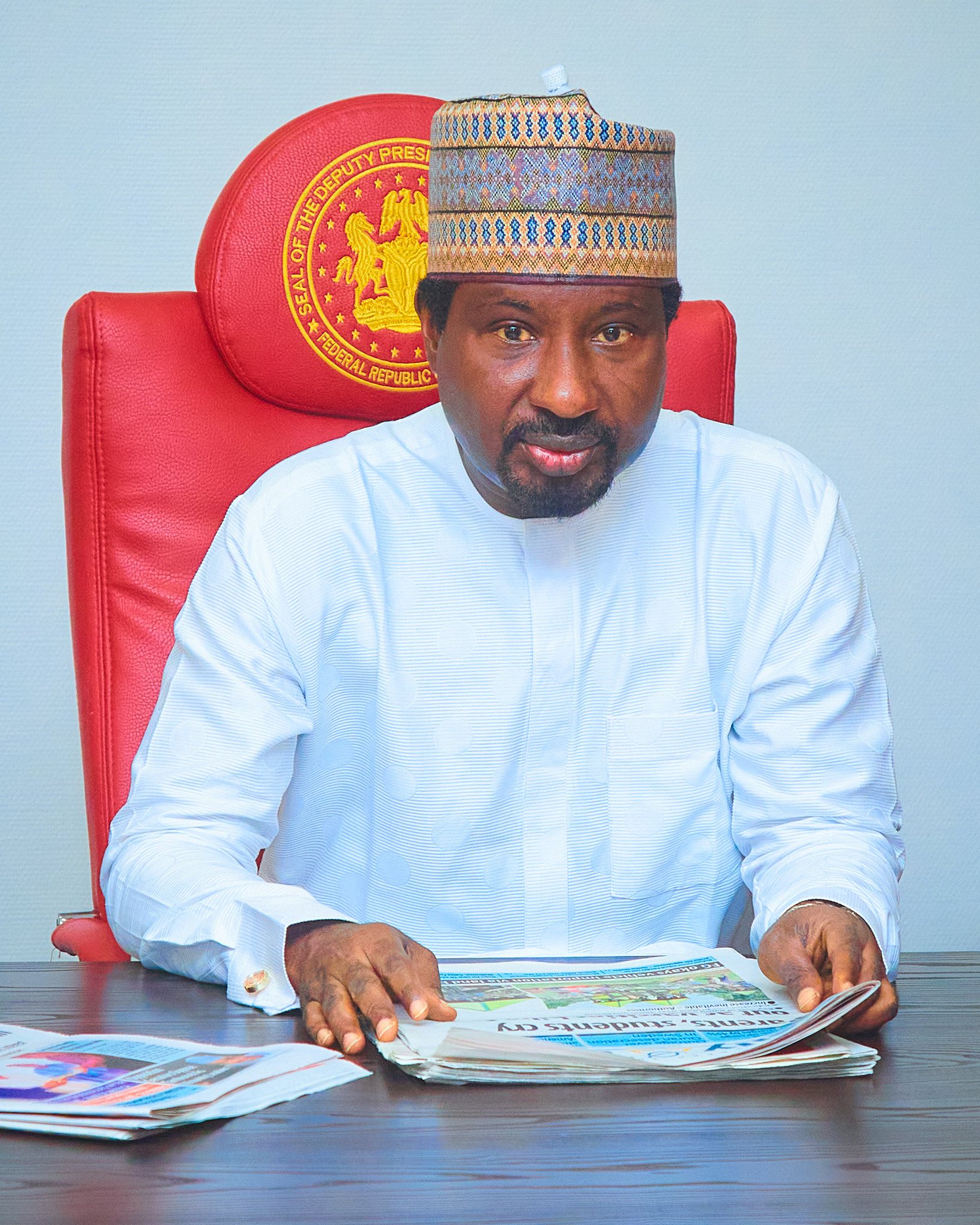
By Ismail Mudashir
Tomorrow, Wednesday, September 20, 2023, the 10th Senate will mark its first 100 days following its inauguration on June 13, this year.
The inauguration of the parliament followed President Bola Ahmed Tinubu’s proclamation, via a letter to the Clerk to the National Assembly, Sani Magaji Tambawal, in line with Section 64(3) of the 1999 Constitution.
The first duty of the senators was the election of the presiding officers – the President of the Senate and the Deputy Senate President. After a keen contest, Senator Godswill Akpabio, from Akwa Ibom State, emerged as the President of the Senate, defeating Senator Abdulaziz Yari, a former governor of Zamfara State.
Apparently, because of his rare personality traits, Senator Barau I. Jibrin, a fourth timer at the National Assembly (three times in the Senate – 2015 to date and once in the House of Representatives – 1999 -2003) emerged as the Deputy President of the Senate unopposed as all his colleagues threw their weight behind him.
Three weeks after the emergence of the two presiding officers, eight principal officers were named, thus the leadership of the 10th Senate was duly constituted. With the constitution of the leadership, the lawmakers got the parliamentary work started as urged by the President of the Senate, Senator Akpabio, in his speech on July 4, 2023, titled, “Let’s get the work started.”
On July 6, Senator Barau, for the first time, presided over the plenary session. During the session, five motions were moved including the one on Mallam Aminu Kano International Airport, Kano.
After the July 6 session which attracted applause from across the Red Chamber and beyond, Senator Barau had presided over the plenary on other occasions in the absence of the President of the Senate in the last 100 days.
Among the critical motions sponsored by the Deputy President of the Senate during the period under review was the one on the poor state of road infrastructure and the menace of gully erosion in the country. Also to his credit was a motion on the emergence of President Tinubu as the Chairman of the Economic Community of West African States (ECOWAS).
Four bills of the Deputy President of the Senate, including the one on the creation of a development commission to fast-track the development of the country, have been introduced at the Red Chamber.
* Balanced appointments
Recognizing the heterogeneous nature of the country, the Deputy Senate President selected his seven key appointees from across the country – four were drawn from Kano State – two from the southern part of the country – Oyo and Imo states, and one from Kwara State – North Central geopolitical zone.
The appointees who hail from Kano State include the Chief of Staff, Professor Muhammad Ibn Abdullahi; the Special Adviser (Policy & Monitoring), Professor Bashir Muhammad Fagge; the Special Adviser (Political), Yusuf Aliyu Tumfafi and the Special Assistant (Media & Publicity), Shitu Madaki Kunchi.
The Special Adviser (Media & Publicity), Ismail Mudashir, hails from Kwara State; the Special Adviser (Special Duties), Idris Abiola Ajimobi, Oyo State; and the Special Adviser (Administration), Mrs. Ngozi Ndawi Nkemdirim, from Imo State.
Commendations have followed what has been described by lawmakers, media practitioners, civil society organisations, and other stakeholders in the country as balanced appointments.
* Constituents driven representation
For Senator Barau, his representation has been constituents and pro-masses driven. Hence the unfettered access he grants to people from Kano North, Kano State, and beyond; the old, young, rich, and poor; APC members and members of other parties.
For instance, in August, he instituted a scholarship programme through which hundreds of tertiary institution students from Kano North Senatorial District were given N50,000 each. The programme was flagged off at Bayero University Kano (BUK).
Before the scholarship scheme, the Deputy President of the Senate had paid WAEC and NECO fees for hundreds of secondary school students.
To boost agriculture in the state, Senator Barau also distributed fertiliser to farmers across the 44 local government areas of the state.
According to beneficiaries, this initiative would enhance their output and contribute towards attaining food security in the state and country.
On September 6, the people of Rimindako community in Bagwai LGA of Kano State, through a human rights activist, Barrister Muhammad Zubair, lauded the Deputy President of the Senate over the construction of Yasanya bridge and access road in their community.
· Visits Abuja Industrial Park
On the invitation of the Zeberced Group, the Deputy President of the Senate was at the Abuja Industrial Park located in the Idu Industrial District on September 4. Sitting on 245 hectares of land, the park will house 200 factories, a helipad, a train station, a lorry park, a bank, a recycling station and a power plant, among others when completed.
The park is an initiative of the Zeberced Group, jointly founded by Adil Aydin Kurt and Cemal Kurt from Turkey. The company’s Managing Director, Aidl Aydin Kurt, conducted Senator Barau around the project. Kurt told his visitor that the project when completed will provide 40,000 direct jobs to Nigerians.
Moved by the 40,000 jobs to be created , Senator Barau said the parliament would provide the necessary legislative support to the company, saying the project was in line with the commitment of the federal government to address unemployment, boost and diversify the country’s economy.
* Keeping parliament alive during recess
Even with the annual recess embarked upon by the parliament on August 7, the office of the Deputy President of the Senate has been active, five days a week (Mondays – Fridays), with Senator Barau performing official engagements. During the period, he met with ministers, heads of agencies, civil society/pressure groups including the promoters of Tiga and Gari states, clerics, and party leaders, among others.
During their visit, stakeholders of the All Progressives Congress (APC) in Kano North Senatorial District, led by Hon. Sani Mukaddas, hailed Senator Barau, describing him as an exceptional lawmaker and leader.
In the same vein, a forum of former zonal women leaders of the APC has thumped up Senator Barau, saying he is not discriminatory in his dealings with all.
“Continue to support us, we won’t disappoint you, Insha Allah,’’ were the words of the Deputy President of the Senate to those who visited him. He also assured them of the commitment of the parliament to support the executive with the necessary legislation to address the challenges facing the nation.
Mudashir is the Special Adviser on Media and Publicity to the Deputy President of the Senate
Opinion
Ahmad Lawan: The Doyen of Nigerian Parliament @64
Published
2 years agoon
January 12, 2023By
News Editor
By Ola Awoniyi
Ahmad Ibrahim Lawan, the Distinguished Senator representing Yobe North Senatorial District of Yobe State, turns 64 on 12th January, 2023. Within those almost six and a half decades, he has seen it all, especially in public service. In just about five months from now, he will conclude his tenure as the 14th President of the Nigerian Senate and sixth consecutive session in the National Assembly.
Lawan has been around for so long in Abuja that it is easy to assume he was never elsewhere. Yet, his earliest work experience was in the academia, and it lasted long enough for him to bag a Doctorate degree in Remote Sensing and Geographic Information System (GIS) before yielding to the pull of partisan politics in 1998.
In that calling, Lawan has clearly made his mark. And not just because he attained the dizzying height of third in the order of succession. People see politics as a dirty game. But Ahmad Lawan does not see it that way. For him, politics should not change the core beliefs and principles of an individual. Service to the people should be the driving objective of partisan political practice. And whether in politics or elsewhere, Lawan believes one’s yes must mean yes.
This has, in no small measure, paid off for Lawan in his almost 25 years in politics, 24 of which has been as a federal lawmaker. A member of the pioneer class of the National Assembly of the Fourth Republic, he was first elected in 1999 to the House of Representatives from the Bade/Jakusko Federal Constituency of Yobe State. He was re-elected to the House in 2003. But in 2007, Lawan crossed over from the Green Chamber to the Red Chamber as the Senator for the Yobe North District. He was re-elected to that Senate seat in 2011, 2015 and 2019.
If you know what it takes to win elections in Nigeria, you would appreciate that what multiple winners like Lawan have accomplished is no small feat. His numerous reelections underscore that his constituents appreciate the quality of representation that he has been providing to them in Yobe North District.
The life of a politician is not all gloss as it may sometimes seem. Election is not a tea party. A parliamentarian in particular needs very hard work to get a return ticket from the party. In Parliament, getting the support of colleagues for motions and bills requires deep knowledge and passion for the subject; focus and temperament. It is actually an extra burden if you are a Presiding Officer in parliament. Success or failure at every stage has its implications.
No wonder, Mallam Nasir El Rufai, the outspoken Governor of Kaduna State, at a recent public function in Abuja, said he has no intention of seeking a seat in the National Assembly like many former governors now do.
Speaking as chairman at the second edition of the “Distinguished Parliamentarian Lecture” organised by the National Institute for Legislative and Democratic Studies(NILDS): the governor said:
“The Legislature is one branch of government I know I can never function. The hardwork needed to convince people to support even your motion is something some of us have no patience for. You know management in the Executive is very straightforward. It is very hierarchical and once you are a governor, your word is almost law. But in the Legislature, everybody is equal and there is no management that is more difficult than managing your equals. I don’t envy Mr Speaker and the Senate President at all because their job perhaps is the hardest job in this country. Managing equals is difficult.”
Despite the difficulties, Ahmad Ibrahim Lawan has shone at the National Assembly since its inauguration in 1999. Lawan is today one of only two lawmakers remaining in the National Assembly from the 1999 set. He has also attained the most enviable of heights in his many years of service at Parliament, becoming “first among equals” in the Upper Chamber, which is the very pinnacle of the hierarchy in the parliament of any democratic society. That makes him the Doyen of the Nigerian Parliament.
In his three and a half years as the 14th President of the Senate and Chairman of the ninth National Assembly, he has set a high standard for whoever will be his successors. He has demonstrated the value of parliamentary experience as a prerequisite for election as a presiding officer for the Upper Chamber.
His experience of more than two decades in parliament has made him an encyclopedia on the inner workings of the National Assembly. Lawan has the standing rules at the tip of his fingers. When any of his colleagues raises a Point of Order, he would ask the colleague to specify which order. But before the text is read out, Lawan already knows the provision and its applicability.
As “first among equals,” Lawan knows the importance of fairness in the conduct of the affairs in plenary. Even though the majority will always have its way, the minority must have its say as well.
Lawan knows the value of a bipartisan Legislature. Perhaps the most difficult aspect of the job of a Presiding Officer is to know when to hit the gavel and when not to. As one of Lawan’s aides, I heard him say, many at times, that he had no choice but to hit the gavel or rule in favour of a majority voice vote even when he held a different view to the voice vote. That is democracy.
Lawan also knows the value of promoting harmony between the Legislature and other arms of government, particularly the Executive, without compromising the independence of the Legislature.
Lawan has seen it all in Parliament. From my vintage point of observation, I quickly realized that he did not become the 14th President of the Senate and Chairman of the Ninth National Assembly by happenstance. It was the result of long years of self-preparedness, self-discipline, consistency, perseverance and tenacity of purpose.
Those attributes are essential for success in any endeavour and Lawan obviously learned that very early. And wherever he goes next, they will accompany him and pave the way for more success.
As I wish the Sardaunan Bade a happy 64th birthday, I also wish him more success in his future endeavours.
***Awoniyi is Special Adviser on Media to Senate President
Latest News
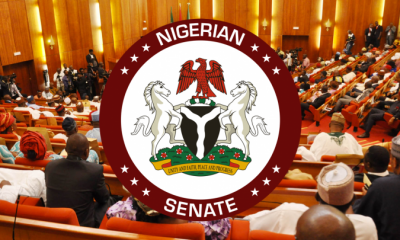

Natasha Not Suspended for Sexual Harassment Allegation, But Violation of Standing Orders, Senate Clarifies
ShareThe Senate has faulted pervasive claims that one of its members representing Kogi Central, Senator Natasha Akpoti-Uduaghan was suspended for...


Nigerian Christians Begin Lent With Ash Wednesday
ShareNigerian Christians have joined their counterparts around the world to celebrate Ash Wednesday which officially heralds the commencement of the...


Bill To End HND, BSc Dichotomy Scales Second Reading In The House
ShareA bill to abolish the dichotomy and discrimination between Bachelor’s Degree holders and Higher National Diploma (HND) holders has scaled...
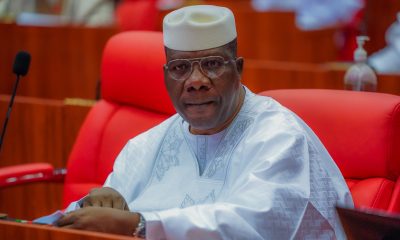

N’Assembly Positioning Nigeria For One Trillion Dollar Economy by 2030 – Bamidele
ShareThe Leader of the Senate, Senator Opeyemi Bamidele on Tuesday reeled out the accomplishments of the 10th National Assembly, saying...
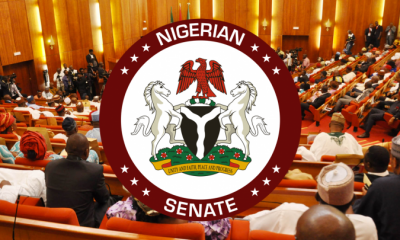

Tax Reform Bills: Senate To Consider Viable Opinions Of Stakeholders
ShareThe chairman, Senate committee on Finance, Senator Sani Musa, says the Senate will consider viable opinions of all stakeholders in...
